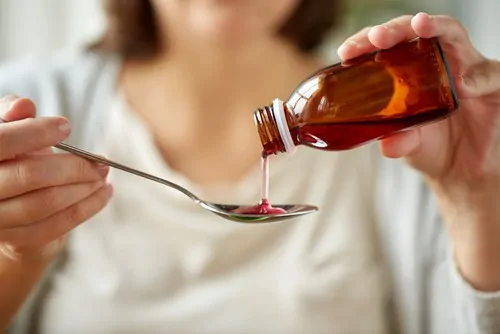
‘Tis the season of coughs, sneezes, colds, and yes, the highly unwanted flu. While we all try our best to keep germs away from our little ones by washing hands religiously and avoiding other sick people, there are times when catching the bug is unavoidable. If your kids get hit with the ick this season, you may ease their symptoms with some medicine. However, at our pediatric dental office in The Woodlands, we’d like to share a few cautions regarding some of the medicine that’s meant to make them feel better.
Cough remedies like syrups and drops help ease discomfort, but they can also result in a few unwanted side effects like dizziness, queasiness, and sleepiness. But that’s not all. Many of the ingredients in popular over-the-counter medications have been linked to tooth decay and cavities.
Sugars
Our trusty friend Mary Poppins may have been on to something when she sang, “a spoonful of sugar helps the medicine go down.” Many cough medicines include sugar to make the liquid taste a bit better. However, sugar is the main contributor to tooth decay and cavities. Mouth bacteria consume sugars, which are then broken down into acid. This acid attacks the enamel and leads to decay.
Alcohol
Although most children’s cough medicines contain alcohol, the amount is minimal. However, some kids may have adverse effects from the ingredient. What’s more, alcohol is naturally drying, and when your mouth is dry, your teeth are at risk for damage. Typically saliva rinses away sugar, acid, and bacteria, helping to keep mouths healthy. When a mouth is dry, saliva isn’t available to do its job and the chance for cavities increases.
At our Woodlands pediatric dental office, we’re here to help keep our patients healthy overall. If you have questions about the best way to treat your child’s cold while also protecting his grin, give us a call. We’ll be happy to help.